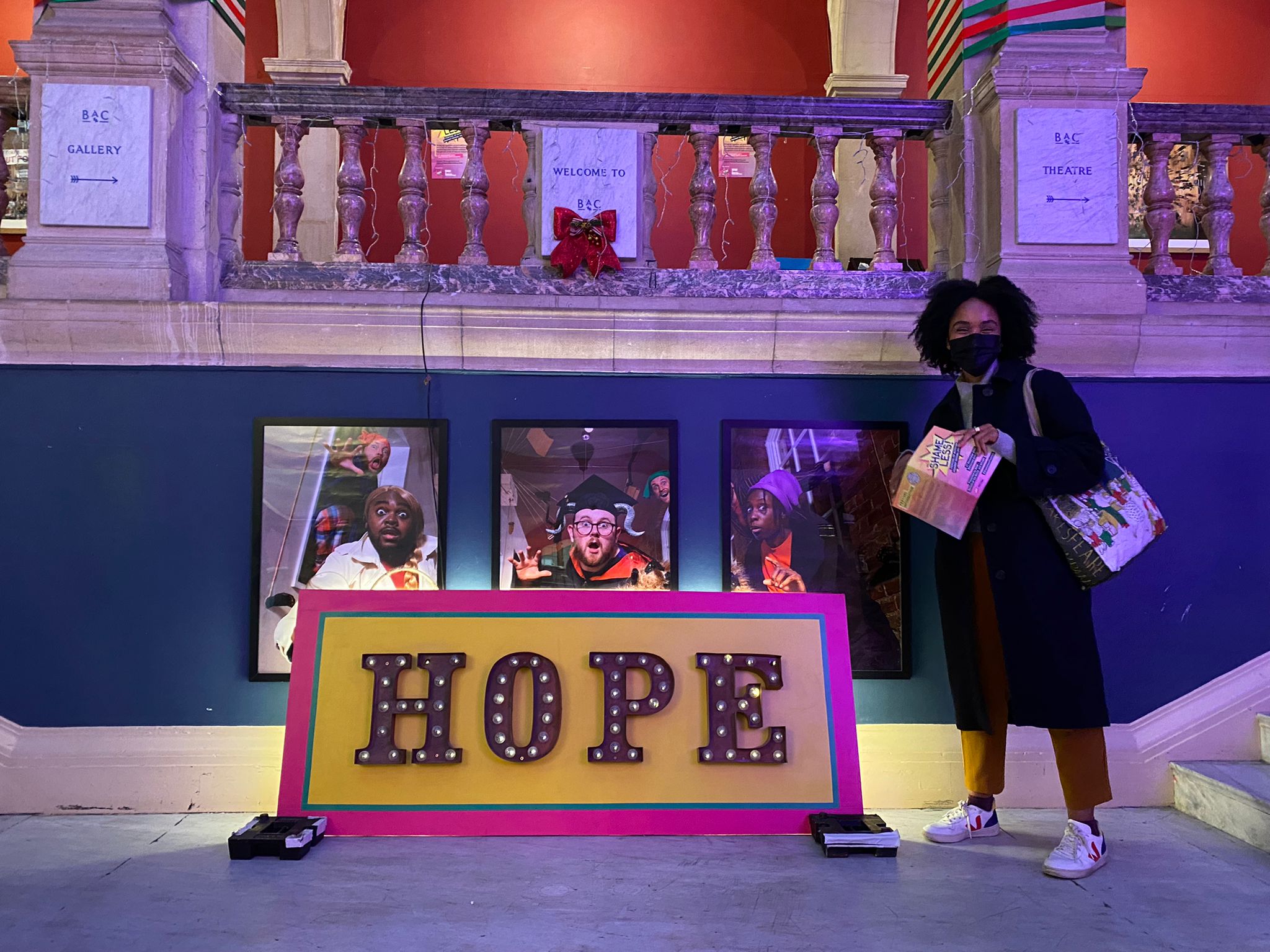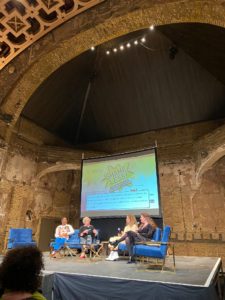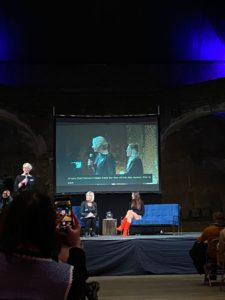MA Film and Screen Media graduate, Charlie Gardiner, shares her thoughts on how studying helped her gain both personal and professional confidence, progressing her career in the film industry.
Getting started in the film industry
After completing my BA Hons in Film, I worked in and around the film industry: I was part of the studio team at a leading company in the casting world, an assistant at a voice talent agency, and a freelance film journalist. While my career was off to a good start, when the pandemic hit, I felt like I needed more: I felt the urge to go back to education.
When education fits around life
One of the main reasons I chose Birkbeck was because of the evening classes. At the time that I decided to study, I was working part-time and partially furloughed due to the pandemic, so I wasn’t sure how my timetable would look if I was called back into full-time work. It was a comfort to know that if my daytime work schedule changed (which it did), I could continue my studies. The fact that I’d always heard good things about Birkbeck was a bonus – I knew it would be a great place to study.
With studying comes confidence
Studying for my Master’s gave me the confidence to apply for jobs outside of my comfort zone. Not only did I have more knowledge about the industry, I had also proven to myself that I have excellent time management skills and drive – pursuing a full-time Master’s whilst also working full-time was no small feat! The experience helped me realise that anyone can achieve what they hope to if they set their mind to it. With my degree and new outlook in hand, I aimed to move into a more creative area of the film industry, ideally within the visual effects (VFX) or post-production fields and I achieved my goal – I’ve just accepted a new job as Talent Coordinator at ILM, a leading VFX company!
A positive learning environment
The diversity of the student body was also inspiring, with people from all walks of life coming together to learn. The inclusivity from the College was great – no matter someone’s age, background or culture, we were given support and space to share ideas together. I know a lot of students don’t say this, but I actually loved writing my dissertation! I felt completely free and supported to write about whatever I wanted to – I chose a subject very close to my heart which made the process so enriching.
Education can surprise you
I never intended to go to university in the first place, let alone go back to do a post-graduate degree. But Birkbeck was there for me when I was in desperate need of some structure and direction. To anyone thinking of studying: if you have the time, energy and patience to dive in, then do it. Why not? Birkbeck is an inclusive, diverse and supportive environment for anyone who wants to better themselves or simply celebrate a passion. I am both grateful and proud to have studied here, and I hope it opens up doors and builds others’ confidence as it has for me.
More information:





